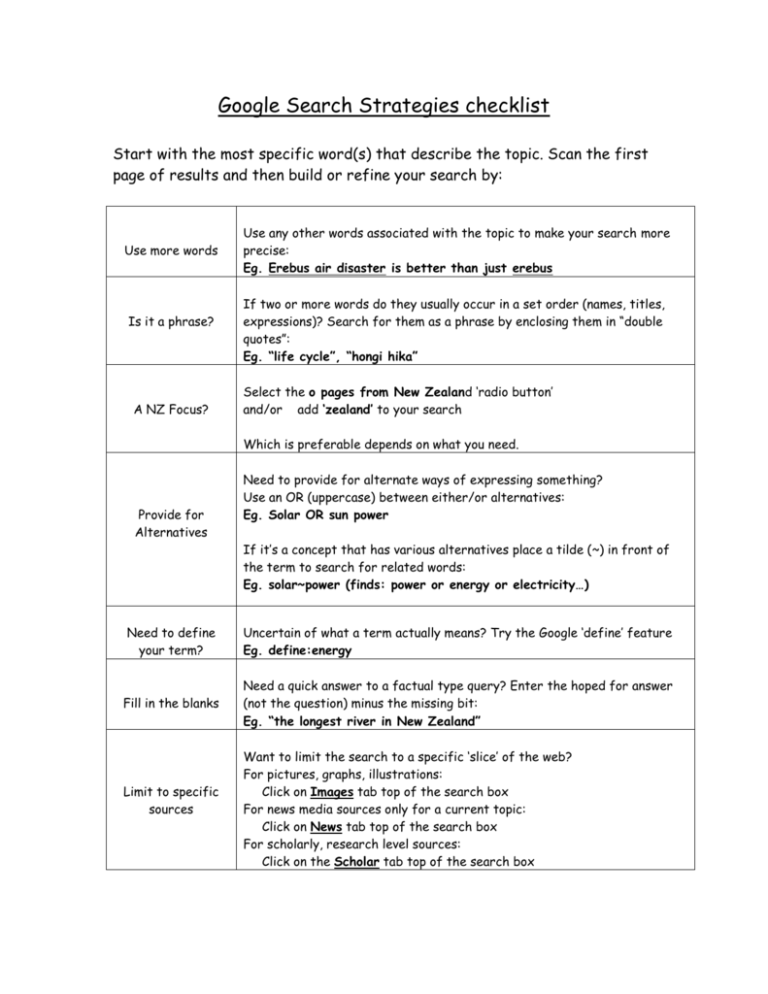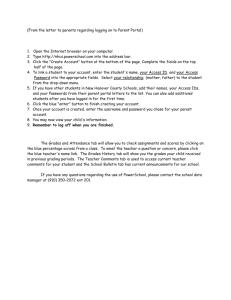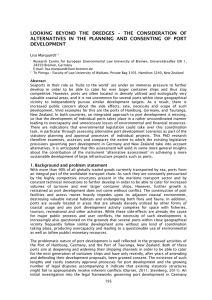Google Search Strategies checklist
advertisement

Google Search Strategies checklist Start with the most specific word(s) that describe the topic. Scan the first page of results and then build or refine your search by: Use more words Is it a phrase? A NZ Focus? Use any other words associated with the topic to make your search more precise: Eg. Erebus air disaster is better than just erebus If two or more words do they usually occur in a set order (names, titles, expressions)? Search for them as a phrase by enclosing them in “double quotes”: Eg. “life cycle”, “hongi hika” Select the o pages from New Zealand ‘radio button’ and/or add ‘zealand’ to your search Which is preferable depends on what you need. Provide for Alternatives Need to provide for alternate ways of expressing something? Use an OR (uppercase) between either/or alternatives: Eg. Solar OR sun power If it’s a concept that has various alternatives place a tilde (~) in front of the term to search for related words: Eg. solar~power (finds: power or energy or electricity…) Need to define your term? Uncertain of what a term actually means? Try the Google ‘define’ feature Eg. define:energy Fill in the blanks Need a quick answer to a factual type query? Enter the hoped for answer (not the question) minus the missing bit: Eg. “the longest river in New Zealand” Limit to specific sources Want to limit the search to a specific ‘slice’ of the web? For pictures, graphs, illustrations: Click on Images tab top of the search box For news media sources only for a current topic: Click on News tab top of the search box For scholarly, research level sources: Click on the Scholar tab top of the search box








